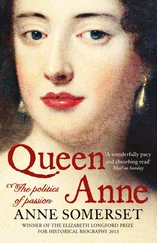Маргарет Олифант - Historical Characters in the Reign of Queen Anne
Здесь есть возможность читать онлайн «Маргарет Олифант - Historical Characters in the Reign of Queen Anne» — ознакомительный отрывок электронной книги совершенно бесплатно, а после прочтения отрывка купить полную версию. В некоторых случаях можно слушать аудио, скачать через торрент в формате fb2 и присутствует краткое содержание. Жанр: foreign_prose, История, foreign_edu, foreign_antique, на английском языке. Описание произведения, (предисловие) а так же отзывы посетителей доступны на портале библиотеки ЛибКат.
- Название:Historical Characters in the Reign of Queen Anne
- Автор:
- Жанр:
- Год:неизвестен
- ISBN:нет данных
- Рейтинг книги:3 / 5. Голосов: 1
-
Избранное:Добавить в избранное
- Отзывы:
-
Ваша оценка:
- 60
- 1
- 2
- 3
- 4
- 5
Historical Characters in the Reign of Queen Anne: краткое содержание, описание и аннотация
Предлагаем к чтению аннотацию, описание, краткое содержание или предисловие (зависит от того, что написал сам автор книги «Historical Characters in the Reign of Queen Anne»). Если вы не нашли необходимую информацию о книге — напишите в комментариях, мы постараемся отыскать её.
Historical Characters in the Reign of Queen Anne — читать онлайн ознакомительный отрывок
Ниже представлен текст книги, разбитый по страницам. Система сохранения места последней прочитанной страницы, позволяет с удобством читать онлайн бесплатно книгу «Historical Characters in the Reign of Queen Anne», без необходимости каждый раз заново искать на чём Вы остановились. Поставьте закладку, и сможете в любой момент перейти на страницу, на которой закончили чтение.
Интервал:
Закладка:
Anne had been but two years married when King Charles died. And then the aspect of affairs changed. The mass in the private chapel, and the presence here and there of somebody who looked like a priest, at once started into prominence and began to alarm the gazers more than the dissolute amusements of the court had ever done. James was not virtuous any more than his brother. One of the first acts which the excellent Evelyn, one of the best of men, had to do as commissioner of the privy seal, was to affix that imperial stamp to a patent by which one of the new king’s favorites was made Countess of Dorchester; but James’s immoralities were not his chief characteristics. He was a more dangerous king than Charles, who was merely selfish, dissolute, and pleasure-loving. James was more; he was a bigoted Roman Catholic, eager to raise his faith to its old supremacy, and the mere thought that the door which had been so bolted and barred against popery was now set open filled all England with the wildest panic. The nation felt itself caught by the torrent which must carry it to destruction. Men saw the dungeons of the Inquisition, the fires of Smithfield, before them as soon as the proscribed priest was readmitted and mass once more openly said at an unconcealed altar. Never was there a more universal or all-influential sentiment. The terror, the unanimity, are things to wonder at. Sancroft and his bishops were not constitutionalists. The personal rule of the king had nothing in it that alarmed them; but the idea of the reintroduction of popery awoke such a panic in their bosoms as drove them, in spite of their own tenets, into resistance; and, for the first time absolutely unanimous, England was at their back. When we take history piecemeal, and read it through the individual lives of the chief actors, we perceive with the strangest sensations of surprise that at these great crises not one of the leaders of the nation was sure what he wanted or what he feared, or was even entirely sincere in his adherence to one party against another. They were the courtiers of James, and invited William; they were William’s ministers, and kept up a correspondence with James. The best of them was not without a treacherous side. They were never certain which was safest, which would last; always liable to lend an ear to temptations from the other party, never sure that they might not to-morrow morning find themselves in open rebellion against the master of to-day. Yet, while almost every individual of note was subject to this strange uncertainty, this confused and troubled vacillation, there was such a sweep of national conviction, so strong a current of the general will, that the supposed leaders of opinion were carried away by it, and compelled to assume and act upon a conviction which was England’s, but which individually they did not possess. Nothing can be made more remarkable, more unexplainable under any other interpretations, than the way in which his entire court, statesmen, soldiers, all who were worth counting, and so many who were not, abandoned King James—some with a sort of consternation, not knowing why they did it, driven by a force they could not resist. No example of this can be more remarkable than that of Clarendon, who received the news of his son’s defection to the Prince of Orange with what seems to be a heartbroken cry: “O God! that my son should be a rebel!” yet, presently, ten days afterward, is drawn away himself in a kind of extraordinary confusion, like a man in a dream, like a subject of mesmeric influence, although in all the following negotiations he maintained James’s cause as far as a man could who did not accept ruin as a consequence. Scarcely one of these men was whole-hearted or had any determined principle in the matter. But in the mass of the nation behind them was a force of conviction, of panic, of determination, that carried them off their feet. The chief names of England appear little more than straws upon the current, indicating its course, but forced along by its fierce sweep and impetus, and not by any impulse of their own.
The Princess Anne occupied a very different position from that of these bewildered statesmen. She had been brought up in the strictest sect of her religion, Protestant almost more than Christian, a churchwoman above all. To those who are capable of thinking about their faith it is always possible to believe in the thoughts of other people, and conceive the likelihood, at least, that they, in their own esteem, if not in any one else’s, may be right—which is the only true foundation of toleration. But it is the people who believe without thinking, who receive what they are taught without exercising any judgment of their own upon the subject, and cling to it in exactly the same form in which they received it, with a conviction that its least important detail is as necessary as its first principle, who furnish that sancta simplicitas which makes the cruelest persecution possible without turning the persecutors into fiends and barbarians. Though her mother had been a Roman Catholic, and her father was one, and though many of her relations belonged to the old church, Anne was a Protestant of the most unyielding kind. She was in herself as good a type of the England of her time as could have been found, far better than her abler and larger-minded advisers. The narrowness of her mind and the rigidity of her faith were above all reassurances of reason, all guarantees of possibility. She was as much dismayed by her father’s determination to liberate and tolerate popery as the least enlightened of his subjects. “Methinks it has a very dismal prospect,” she wrote as early as 1686, only the year after James’s accession. “Attempts,” Lady Marlborough tells us, “were made to draw his daughter into his designs. The king, indeed, used no harshness with her; he only discovered his wishes by putting into her hands some books and papers which he hoped might induce her to a change of religion, and had she had any inclination that way the chaplains about were such divines as could have said but little in defense of their own religion or to secure her against the pretenses of Popery recommended to her by a father and a king.” This low estimate of the princess’s spiritual advisers is whimsically supported by Evelyn’s opinion of Anne’s first religious preceptor,—Bishop Compton,—of whom the courtly philosopher declared after hearing a sermon from him that “this worthy person’s talent is not preaching.”
But Anne required no persuading to stimulate her in the fear of popery and narrow devotion to the church, outside of which she knew of no salvation. No doubt her father’s popish tracts, things which in that age were held to possess many of the properties of the dynamite of to-day, scared the inflexible and unimaginative churchwoman as much as if they had been capable of exploding and doing her actual damage. Her training, so wisely adapted to please the Protestant party, had probably been thought by her father and uncle to be a matter of complete indifference on any other ground; but in this way they reckoned altogether without their princess. With both James’s daughters the process was too successful. They feared popery more than they loved their father. There seems not the slightest reason to suppose that Anne was insincere in her anxiety for the church, or that the panic which she shared with the whole country was affected or unreal. It is impossible that she could expect her own position to be improved by the substitution of her sister and her sister’s husband for the father who had always been kind to her. The Churchills, whose church principles were not perhaps so undeniable, and whose regard for their own interest was great, are more difficult to divine; and yet it appears an unnecessary thing to refer their action to unworthy motives. It is asserted by some that they had some visionary plan after they had overturned the existing economy by the help of William, of bringing in their princess by a side wind and reigning through her over the startled and subjugated nation. But granting that such an imagination might have been conceived in the fertile and restless brain of a young and sanguine woman, it seems impossible to imagine that Churchill—a man of some experience in the world, and some knowledge of William—could even for a moment have believed that the grave and ambitious prince, who was so near the throne, could have been persuaded or forced to waive his wife’s claims, and those still more imperative ones which his position of Deliverer gave him, in order to advance the fortunes of any one else, least of all of the sister-in-law whom he despised.
Читать дальшеИнтервал:
Закладка:
Похожие книги на «Historical Characters in the Reign of Queen Anne»
Представляем Вашему вниманию похожие книги на «Historical Characters in the Reign of Queen Anne» списком для выбора. Мы отобрали схожую по названию и смыслу литературу в надежде предоставить читателям больше вариантов отыскать новые, интересные, ещё непрочитанные произведения.
Обсуждение, отзывы о книге «Historical Characters in the Reign of Queen Anne» и просто собственные мнения читателей. Оставьте ваши комментарии, напишите, что Вы думаете о произведении, его смысле или главных героях. Укажите что конкретно понравилось, а что нет, и почему Вы так считаете.












